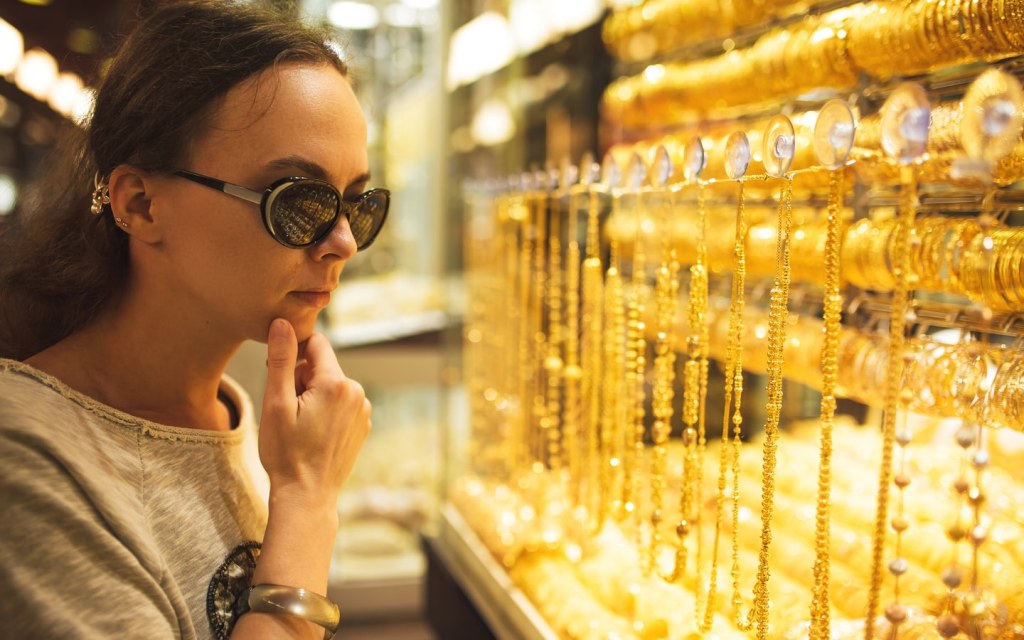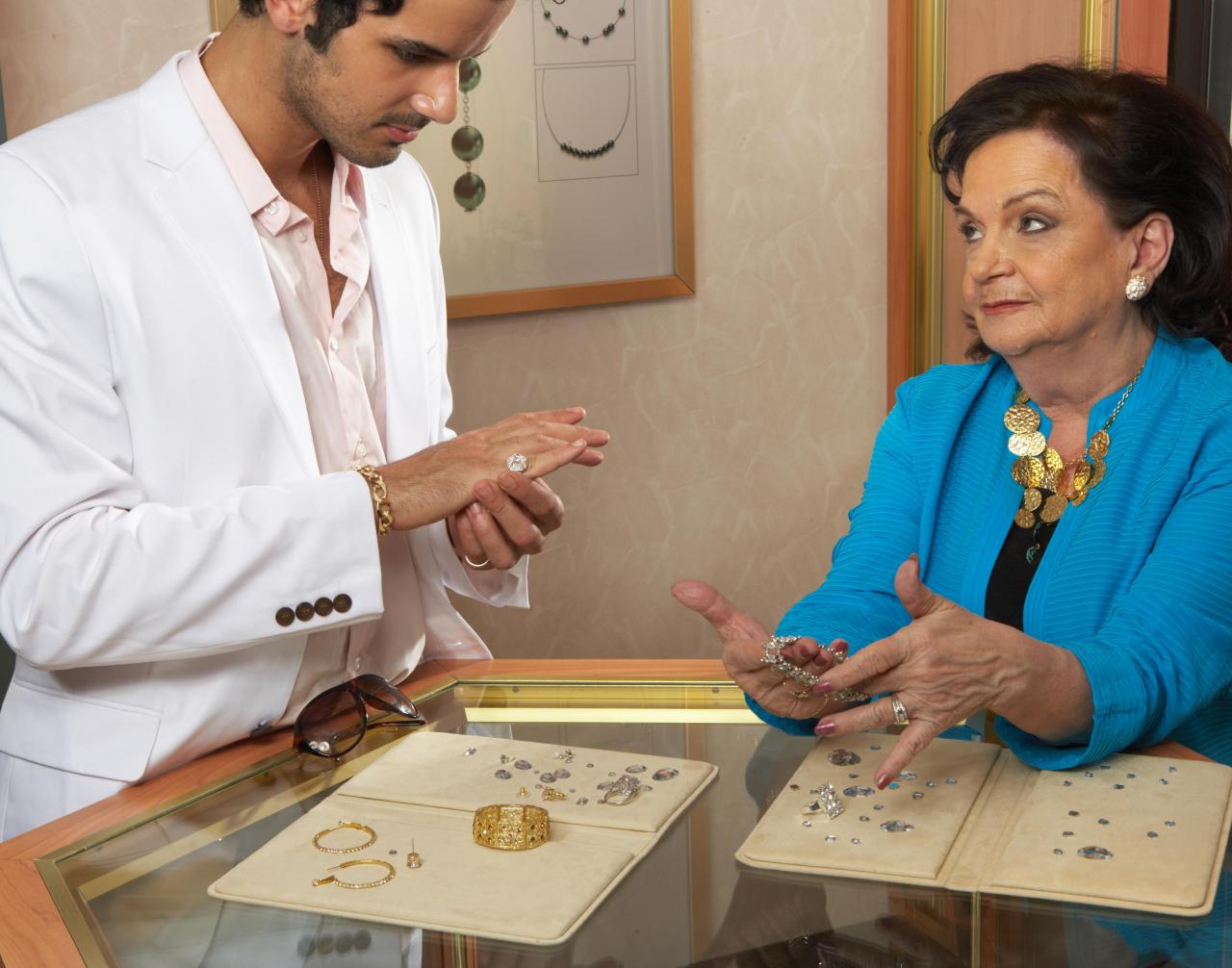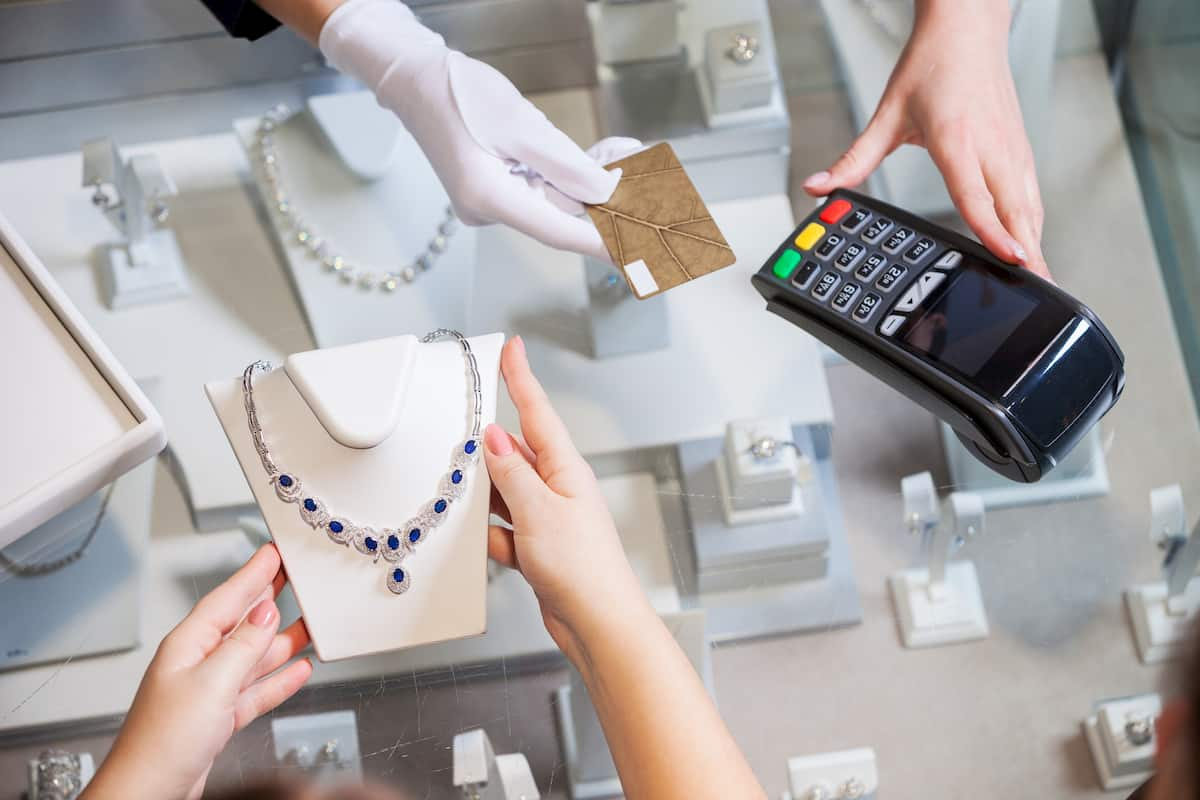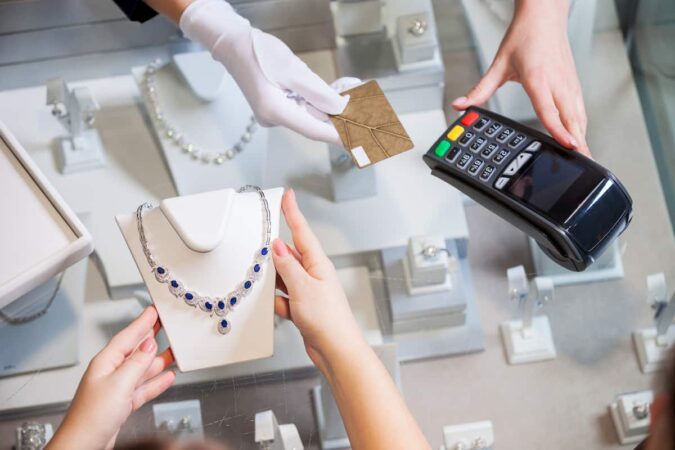
How to buy jewelry? It’s a question that many people ask themselves, whether they’re looking for a special gift, a piece to add to their collection, or simply something to make them feel good. The world of jewelry can be overwhelming, with so many different styles, materials, and prices to choose from. But with a little knowledge and planning, you can find the perfect piece for you.
This guide will walk you through everything you need to know about buying jewelry, from understanding the basics to choosing the right piece for your needs. We’ll cover topics like setting a budget, finding reputable jewelers, and caring for your jewelry so that it lasts for years to come.
Choosing the Right Jewelry for Your Needs
Choosing the right jewelry can be a fun and rewarding experience, allowing you to express your personal style and enhance your look. However, with so many options available, it can be overwhelming to know where to start. This guide will help you navigate the world of jewelry, offering insights on selecting pieces that complement your personality and occasions.
Understanding Your Personal Style
Understanding your personal style is crucial when choosing jewelry. This involves identifying your preferred aesthetics, colors, and materials. Do you gravitate towards classic and timeless pieces, or do you embrace bold and statement-making designs? Consider your wardrobe and the occasions you typically dress for. If you favor minimalist outfits, delicate jewelry with subtle accents might be a good choice. Conversely, if you enjoy vibrant colors and patterns, statement necklaces, chunky earrings, or layered bracelets can add a touch of personality.
Matching Jewelry to Different Occasions
- Formal Events: For black-tie affairs or weddings, opt for elegant pieces such as diamond necklaces, pearl earrings, or sophisticated bracelets. These pieces add a touch of glamour and sophistication to formal attire.
- Semi-Formal Occasions: Cocktail parties or evening events call for slightly less formal jewelry. Consider statement earrings, cocktail rings, or delicate necklaces with gemstones or pearls.
- Casual Outings: For everyday wear, choose simple and comfortable jewelry pieces like hoop earrings, pendant necklaces, or layered bracelets. These pieces can add a touch of personality to your casual outfits.
- Workwear: For the office, select professional and understated jewelry pieces. Simple studs, a delicate chain necklace, or a watch are good options.
Symbolism and Meaning of Jewelry
Jewelry often holds symbolic meanings and can convey messages beyond aesthetics.
- Diamonds: Often associated with love, commitment, and eternity, diamonds are a popular choice for engagement rings and other special occasions.
- Pearls: Symbolizing purity, innocence, and elegance, pearls are often worn for formal events or as a statement piece.
- Gold: A symbol of wealth, prosperity, and power, gold jewelry is often associated with luxury and sophistication.
- Silver: Representing the moon, silver jewelry is associated with feminine energy, intuition, and spiritual awareness.
Buying Jewelry Online

The digital age has revolutionized the way we shop, and jewelry is no exception. Online platforms offer a vast selection of pieces, competitive prices, and the convenience of shopping from the comfort of your home. However, it’s crucial to navigate the online jewelry market with caution to ensure a safe and satisfying experience.
Benefits and Drawbacks of Online Jewelry Shopping
Shopping for jewelry online presents both advantages and disadvantages. Understanding these aspects will help you make informed decisions about where and how to buy your next piece.
- Benefits:
- Vast Selection: Online retailers offer a significantly wider variety of jewelry styles, materials, and price points compared to brick-and-mortar stores. You can browse through thousands of options from different brands and designers, finding unique pieces that might not be available locally.
- Convenience: Online shopping eliminates the need for physical travel, allowing you to browse and purchase jewelry at your own pace and from the comfort of your home. You can shop anytime, anywhere, without the pressure of sales associates or crowds.
- Competitive Prices: Online retailers often offer lower prices compared to traditional jewelers due to lower overhead costs. Many websites also offer discounts, promotions, and coupon codes, further enhancing savings.
- Detailed Information: Online platforms provide comprehensive information about each piece of jewelry, including materials, dimensions, care instructions, and customer reviews. This detailed information empowers you to make informed purchasing decisions.
- Drawbacks:
- Lack of Physical Examination: One of the biggest drawbacks of online jewelry shopping is the inability to physically examine the piece before purchasing. This can lead to disappointment if the actual piece differs from the online images in terms of size, color, or quality.
- Potential for Scams: The online market is susceptible to fraudulent activities. It’s essential to be vigilant and choose reputable retailers to avoid scams and counterfeit products.
- Shipping and Delivery: Shipping costs can add to the overall price, and delivery times can vary depending on the retailer and location. Additionally, there is a risk of damage or loss during shipping.
- Limited Customer Service: While online retailers often provide customer service, it might not be as personalized or readily available as in a brick-and-mortar store. You may need to rely on email or online chat for assistance.
- Detailed Inspection: In-store shopping provides the opportunity to thoroughly examine the jewelry, checking for any imperfections or flaws that might not be apparent online.
- Personal Interaction: You can interact with knowledgeable staff who can provide guidance and answer questions about specific pieces, different metals, and gemstones.
- Personalized Service: A jewelry consultant can help you find pieces that match your style and budget, offering tailored recommendations and suggestions.
- On-the-Spot Adjustments: Some stores offer on-the-spot services like resizing rings or adjusting chain lengths, providing convenience and immediate gratification.
- Security and Trust: Reputable jewelry stores offer a secure environment for transactions, ensuring the authenticity and quality of the purchased pieces.
In-Store Jewelry Shopping
Visiting a jewelry store offers a hands-on experience and the opportunity to interact with knowledgeable staff. This allows you to examine pieces in detail, get a sense of their quality and craftsmanship, and receive personalized advice.
Benefits of In-Store Jewelry Shopping
In-store shopping allows you to physically inspect the jewelry, ensuring its quality and authenticity. You can see the piece’s details, such as the metal’s shine, the stone’s clarity, and the craftsmanship of the setting.
Steps Involved in In-Store Jewelry Shopping
When visiting a jewelry store, follow these steps to ensure a smooth and successful shopping experience.
- Research and Preparation: Before visiting a store, determine your budget, desired style, and preferred metals and gemstones. Research different brands and retailers to compare prices and styles.
- Schedule an Appointment: For a more personalized experience, schedule an appointment with a jewelry consultant, especially if you have specific requirements or questions.
- Ask Questions: Don’t hesitate to ask questions about the jewelry, its quality, and the store’s policies. Clarify any doubts or concerns you may have.
- Try Before You Buy: Try on different pieces to see how they fit and look on you. Consider various styles and designs to find the perfect match.
- Request a Professional Appraisal: If you are purchasing a valuable piece of jewelry, consider getting a professional appraisal from a reputable gemologist. This will provide an independent assessment of the jewelry’s value and authenticity.
- Secure Payment and Receipt: Ensure you receive a detailed receipt with the purchase details, including the item description, price, and any warranties or guarantees.
Getting a Professional Jewelry Appraisal
A professional jewelry appraisal is a valuable investment, especially for valuable pieces. It provides an independent assessment of the jewelry’s value and authenticity, which can be helpful for insurance purposes, estate planning, or future resale.
- Insurance: A professional appraisal can help determine the appropriate insurance coverage for your jewelry, ensuring you are adequately protected in case of loss or damage.
- Estate Planning: An appraisal can provide accurate valuation for inheritance purposes, helping to ensure fair distribution of assets.
- Resale: A professional appraisal can help determine the fair market value of your jewelry if you decide to sell it in the future.
Working with a Trusted Jewelry Consultant, How to buy jewelry
A trusted jewelry consultant can be a valuable resource throughout your jewelry buying journey.
- Personalized Guidance: A consultant can provide personalized advice and recommendations based on your style, budget, and preferences.
- Expertise and Knowledge: Consultants have extensive knowledge of jewelry, including different metals, gemstones, and design trends.
- Trusted Source: A reputable jewelry consultant can help you navigate the complex world of jewelry, ensuring you make informed decisions and avoid potential scams.
Jewelry Care and Maintenance

Jewelry is a valuable investment, both financially and emotionally. To ensure that your pieces remain beautiful and last for years to come, proper care and maintenance are essential. This guide will provide you with the knowledge and tools to keep your jewelry sparkling and in pristine condition.
Cleaning and Caring for Different Types of Jewelry
Jewelry is made from a variety of materials, each with its own unique cleaning and care requirements. It’s important to understand the specific needs of your jewelry to prevent damage and maintain its brilliance.
- Precious Metals: Gold, silver, and platinum are durable metals that require gentle cleaning. Use a soft-bristled brush and a mild soap solution to remove dirt and grime. Avoid harsh chemicals, abrasive cleaners, and ultrasonic cleaners, as they can damage the metal’s finish.
- Gemstones: Gemstones come in various hardness levels, ranging from soft to extremely hard. Soft stones like opals, pearls, and turquoise require special care. They should be cleaned with a soft cloth and mild soap solution, avoiding harsh chemicals and abrasive cleaners. Hard stones like diamonds, sapphires, and rubies are more durable and can be cleaned with a jewelry cleaning solution.
- Pearls: Pearls are delicate and require special care. They should be cleaned with a soft cloth and a mild soap solution. Avoid using harsh chemicals, abrasive cleaners, and ultrasonic cleaners. Pearls are also susceptible to damage from perfumes, hairspray, and other cosmetics.
- Costume Jewelry: Costume jewelry is typically made from less durable materials, such as brass, nickel, and plastic. Avoid exposing costume jewelry to water, chemicals, and extreme temperatures. It’s best to clean costume jewelry with a soft cloth and mild soap solution.
Storing Jewelry Properly
Proper storage is crucial for protecting your jewelry from damage, scratches, and tarnishing.
- Separate Pieces: Store each piece of jewelry individually to prevent scratching and tangling. Use jewelry boxes, pouches, or trays with compartments.
- Avoid Direct Sunlight and Heat: Store jewelry in a cool, dry place away from direct sunlight and heat. These conditions can cause discoloration and damage.
- Tarnish Prevention: Store silver jewelry in airtight containers with anti-tarnish strips or cloths. These strips absorb sulfur from the air, preventing tarnishing.
- Avoid Humidity: Avoid storing jewelry in humid environments, as this can lead to tarnishing and damage.
Preventing Damage and Wear
With proper care, your jewelry can last for generations. Here are some tips to prevent damage and wear:
- Remove Jewelry Before Activities: Remove jewelry before engaging in activities that could cause damage, such as swimming, showering, exercising, and sleeping.
- Handle with Care: Handle jewelry gently to avoid scratches and dents. Use a soft cloth to polish and clean your jewelry.
- Avoid Harsh Chemicals: Avoid exposing jewelry to harsh chemicals, such as bleach, chlorine, and ammonia. These chemicals can damage the metal and gemstones.
- Store Properly: Always store jewelry properly to prevent scratches, tangles, and tarnishing.
Closing Summary

Buying jewelry is an exciting experience, and with a little research and preparation, you can find the perfect piece that you’ll cherish for years to come. Whether you’re a seasoned jewelry enthusiast or just starting your collection, remember to trust your instincts, do your research, and enjoy the process. After all, jewelry is more than just an accessory; it’s a reflection of your personal style and a piece of your story.
FAQ Section: How To Buy Jewelry
What are some common jewelry materials?
Common jewelry materials include precious metals like gold, silver, and platinum, as well as gemstones like diamonds, sapphires, and emeralds. You can also find jewelry made from less expensive materials like stainless steel, titanium, and acrylic.
What are some tips for finding a reputable jeweler?
Look for jewelers with good online reviews, certifications from reputable organizations, and a physical store location. You can also ask for recommendations from friends and family.
How do I know if a piece of jewelry is real?
Look for hallmarks and certifications that indicate the metal and gemstone type. You can also take the jewelry to a reputable jeweler for an appraisal.
How do I care for my jewelry?
Clean your jewelry regularly with a soft cloth and mild soap. Store it in a cool, dry place away from direct sunlight. Avoid exposing your jewelry to harsh chemicals or extreme temperatures.





